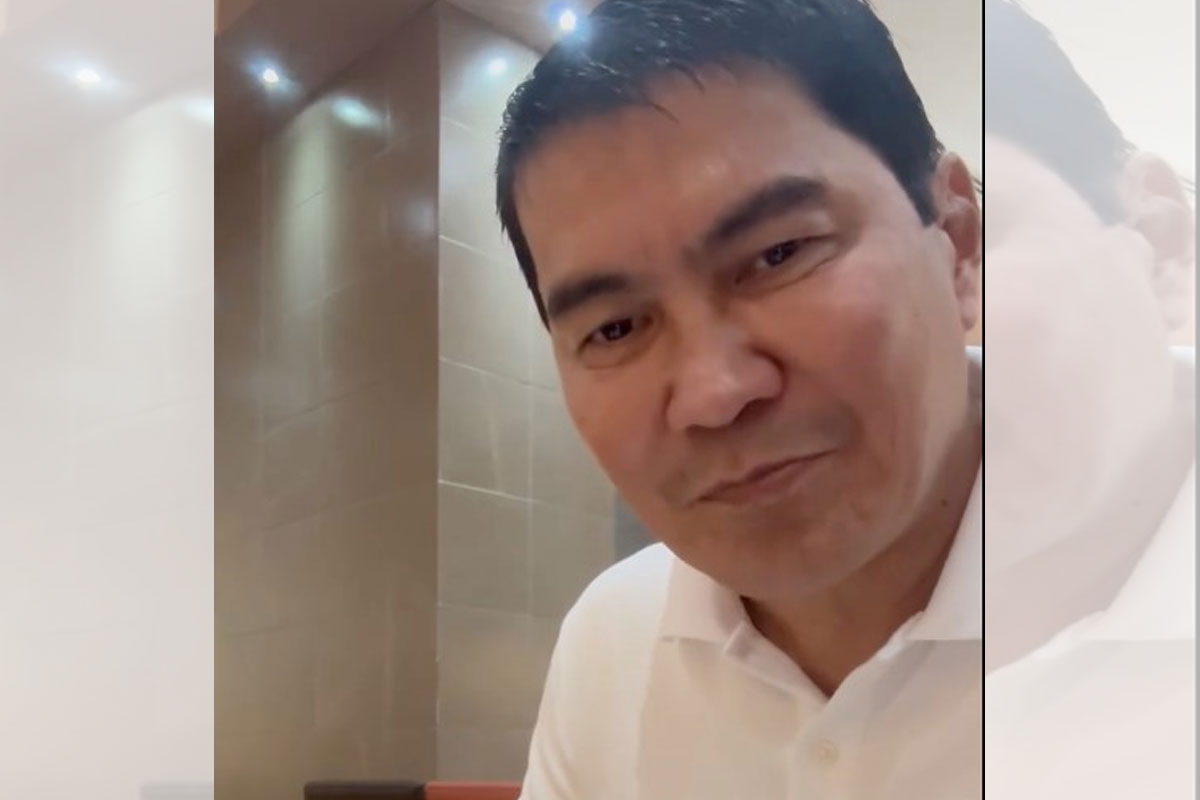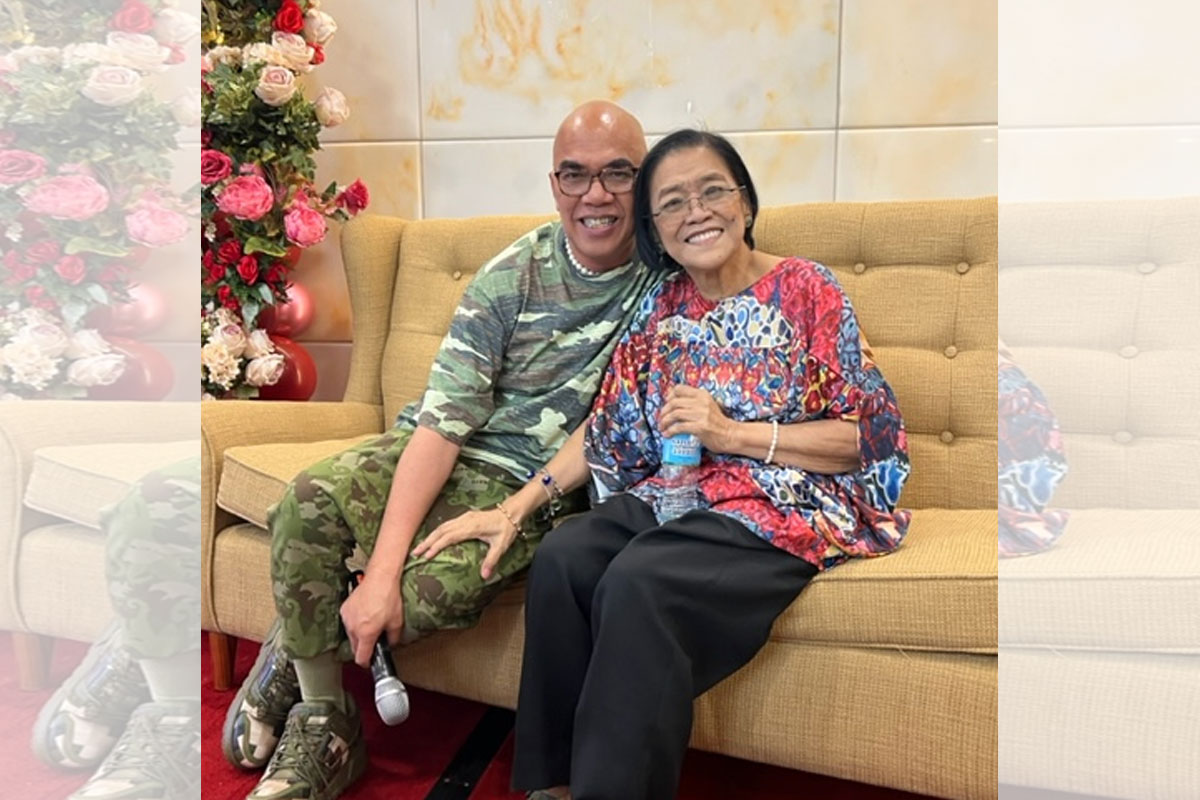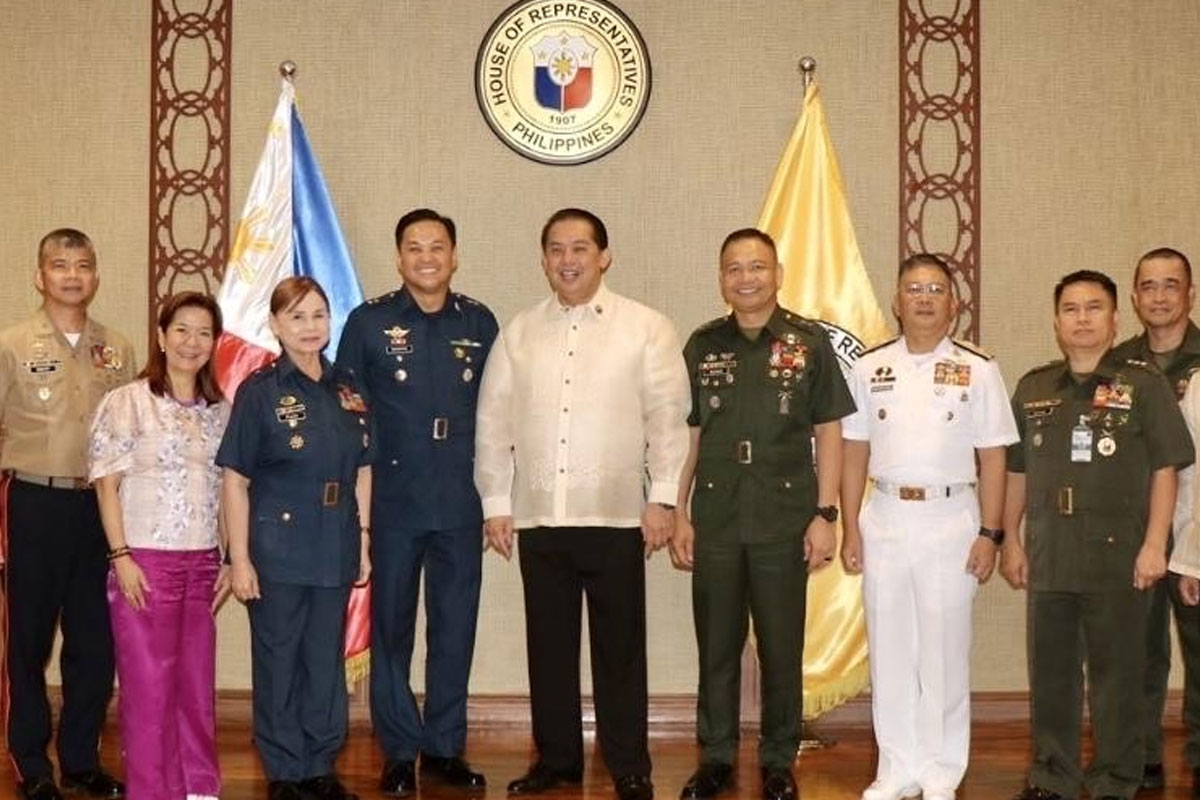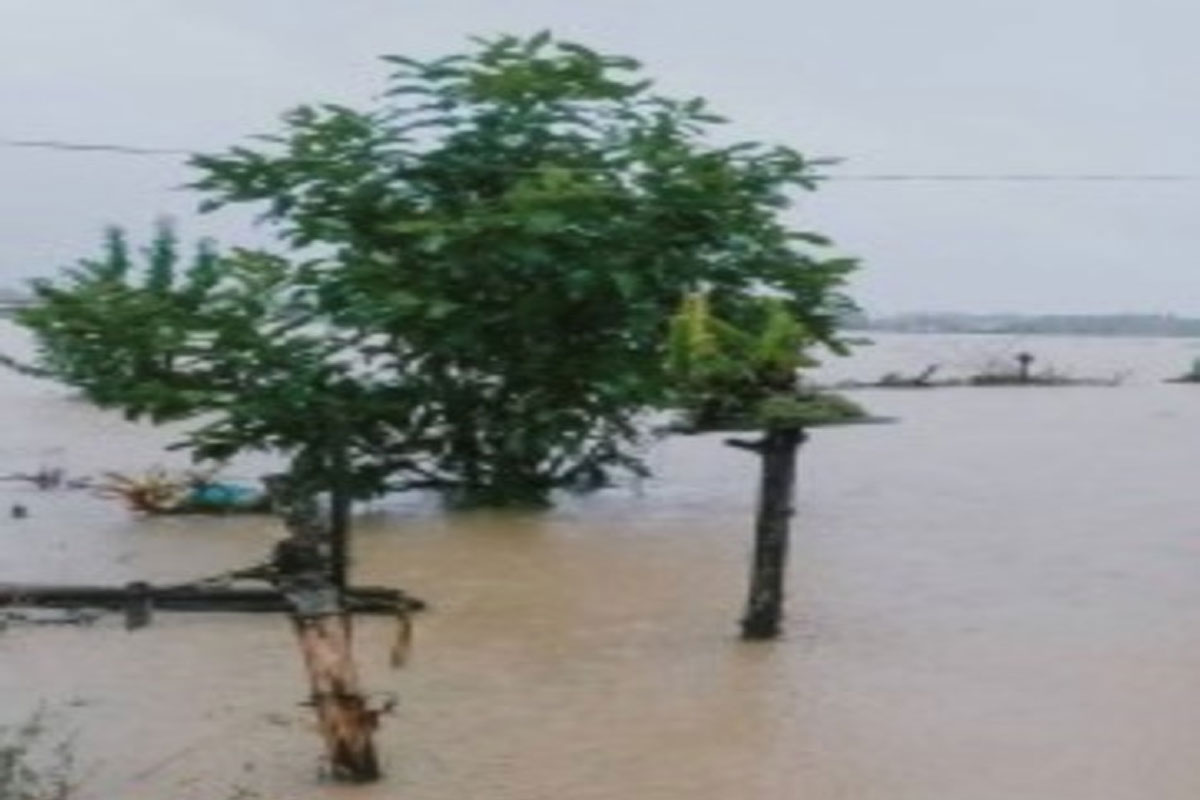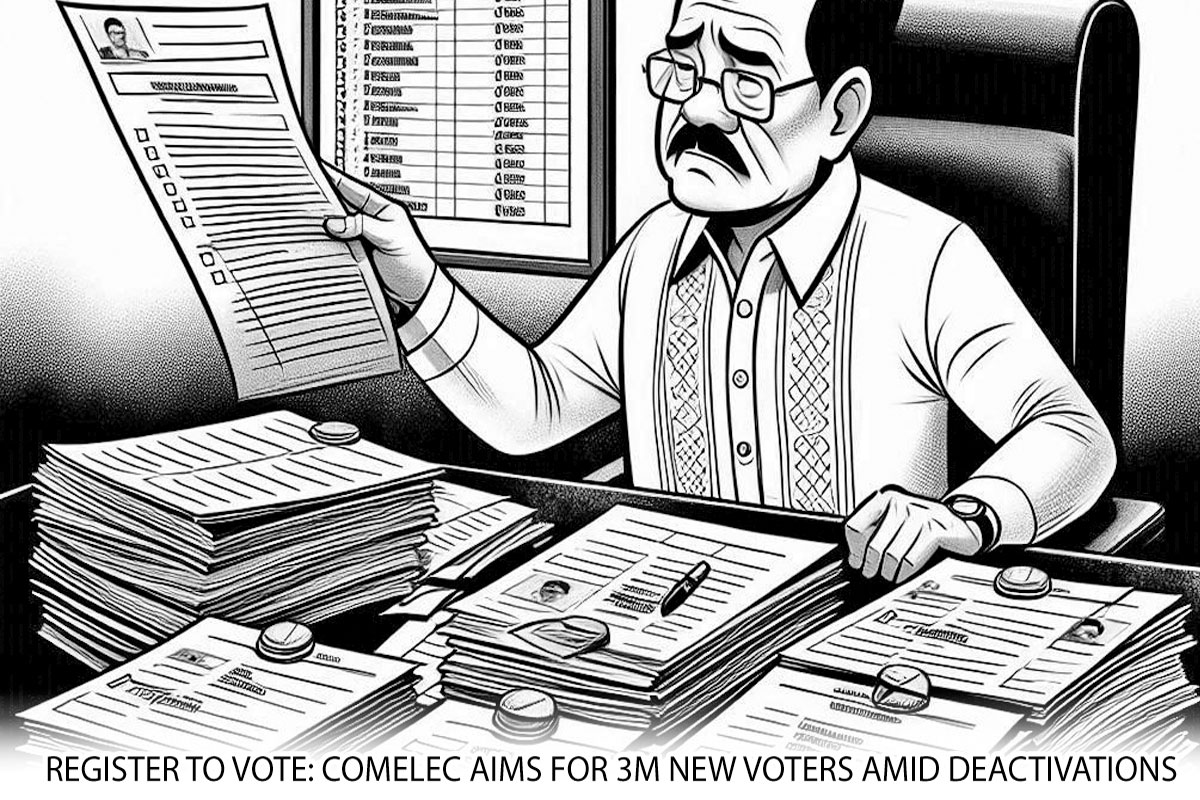
QCPD’s 3-minutes response time at its best
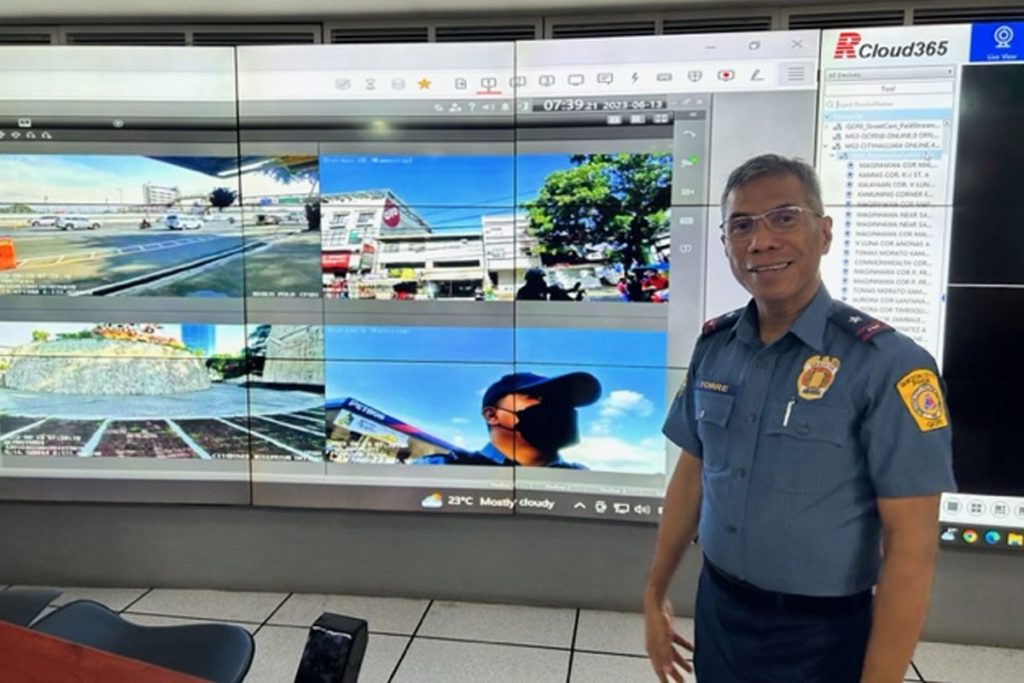
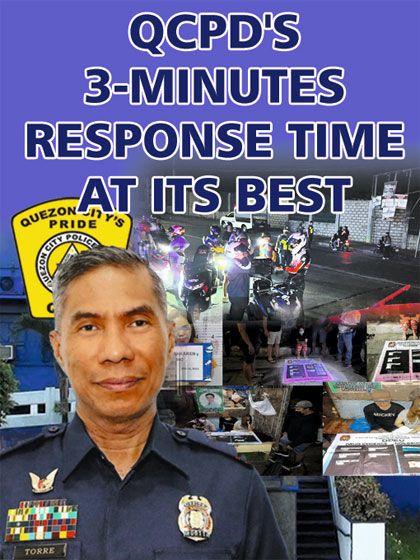 THE ‘Three-Minute Response Time’ (TMRT) of the Quezon City Police District headed by Brigadier General Nicolas D. Torre III is proving its worth that Philippine National Police (PNP) chief, General Benjamin C. Acorda Jr. wants the QCPD ‘best practice’ replicated nationwide.
THE ‘Three-Minute Response Time’ (TMRT) of the Quezon City Police District headed by Brigadier General Nicolas D. Torre III is proving its worth that Philippine National Police (PNP) chief, General Benjamin C. Acorda Jr. wants the QCPD ‘best practice’ replicated nationwide.
Even the 17 Metro Manila mayors leading the Regional Peace and Order Council have been impressed by the demonstration of the TMRT at the QCPD headquarters in Camp Karingal that San Juan City Mayor Francis Zamora, RPOC chairman, had suggested it should be also done by the other police districts in Metro Manila to further improve the peace and order situation in the country’s premier region.
Torre, a member of PNP Academy ‘Tagapaglunsad’ Class of 1993, conceptualized the TMRT project using all available PNP technology shortly after being designated as QCPD director in August 8 last year.
Last week, he showed to the Journal Group how their TMRT Integrated Command Control Center in Camp Karingal.
After getting radio calls from the ICCC, uniformed officers on board patrol cars and motorcycles arrived in four separate areas: in front of a Jollibee branch at the corner of Quirino Highway and Regalado Avenue; EDSA corner Aurora Avenue; Amoranto Avenue corner Banawe; and E. Rodriguez corner Banawe Street in less than three minutes.
It was really a good clocked practice with some of the officers responding to the site in only one minute and 30 seconds.
The QCPD at present has 84 body-worn cameras and 170 radios which are all fully functioning. Each of the 17 QCPD stations have been given four BWC units each while the rest are being used by those assigned at Camp Karingal.
“It’s just a matter of training our personnel on the proper use, utilization and care of these valuable pieces of equipment as I really believe that the problem lies on the people, not the equipment,” said Torre.
“With all sincerity, I believe I have developed commanders who can command literally and figuratively. There’s a battle raging everyday kaya dapat maintindihan ng commanders natin what is good for them,” he added.
He added that it took him three months to set up the their ICCC while requiring all QCPD station commanders to see to it that they are the first to be very knowledgeable on how to use their PNP-issued BWCs and radio equipment.
The official said he is banking on real-life experience and thus has made it a point to make sure his officers and men are trained on how to use a police radio or a BWC once these equipment are issued to them.
It has been common knowledge that many officers in Central Luzon were found to have no training at all and could not properly handle almost half of the nearly 3,000 radio equipment procured by the PNP for the 31st ASEANAPOL Summit and Related Meetings held in Clark, Pampanga in 2017.
“I am only ensuring that we can respond immediately, within 3-minutes exactly in real-time, real-life situation. How? By seeing to it that our men are fully efficient in using pieces of equipment given to us by the PNP leadership,” said the QCPD director.
Since last January, the QCPD District Tactical Operations Center has been sending its patrollers to respond to emergency calls being received by the Q.C Helpline 122. Since the year started, the thousands of concerns and calls for emergencies forwarded to the Q.C. Helpline 122 have been promptly responded to by the QCPD within three-minutes.
The Q.C. Helpline 122 has been cited as a fine example of good government service. Sad to say, questions have been raised regarding the failure of the national government’s emergency 911 hotline to really provide timely help to the citizenry although it has been described as a unified emergency response system for police, fire, medical and other catastrophe crises.
Torre assured Q.C. residents and visitors that ‘Dial 122 and darating kami sa loob ng 3 minuto.’
He also emphasized that complaints regarding poor signal should be set aside. “Hindi totoo yun kung ma-uutilize lang, kung lahat aayusin, kung lahat gagamitin, The problem is how to utilize the equipment.
“The problem is pag ang opisyal, hindi alam kung papano i-operate ang BWC o ang radio kasi pag sinabi ng isang patrolman o sarhento na sira ang mga ito, yun na ang magiging paniniwala nila.
Me experience nga ako na yung ibang pulis, hindi-alam kung papano i-turn on ang Body-Cam o gumamit ng hand-held radio,” he added.
The QCPD’s TMTR is utilizing available drones, the BWCs and hand-radios issued to its mobile crew patrollers, members of its Tactical Motorcycle Riding Unit and beat patrollers who are serving as their everyday ‘first responders’ while assigned in fixed points or nearby areas in Q.C.
Apart from being connected to the Q.C. government’s Helpline 122, the QCPD communication center has also linked up with the Metro Manila Development Authority in order to quickly assist the MMDA in emergency situations which need police help.
“It’s just the honest-to-goodness utilization of equipment and deployment of personnel,” he said when asked what is the secret of their successful TMRT under his ‘Quick Response, Quick Solution program.
The TMRT has recorded a number of significant accomplishments so far, thanks to calls received by the Helpline 122 which were immediately forwarded to the QCPD.
They include the arrest of a man who figured in a ‘hit-and-run’ incident; the arrest of a man who stabbed his stepfather; and the successful foiling of an attempt by a woman to commit suicide in different parts of the city.
Acorda congratulated the QCPD for the project and said he wants the TMRT done in other parts of Metro Manila and many urban areas in the country.
“If we can do that in the whole area of Metro Manila na kapag may nangyaring insidente andiyan kaagad ang pulis [that police respond immediately when there are crimes, then I think yung crime prevention lalong mapapaigting,” he said.
The top cop has urged all PNP regional directors to replicate the project as part of their crime prevention and solution strategies.
He also assured the National Capital Region Police Office headed by Major Gen. Edgar Alan O. Okubo of his commitment to intensify efforts against criminality, drugs, insurgency, terrorism, and corruption through proactive policing and intelligence-driven operations.


